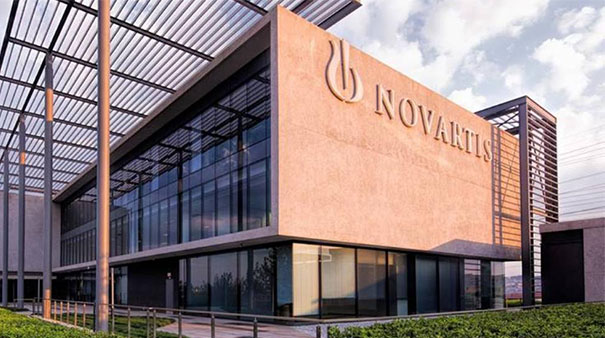Novartis taps Microsoft’s AI expertise for drug development

Novartis has forged an alliance with Microsoft that will apply artificial intelligence and machine-learning to the discovery, development and commercialisation of new medicines.
The five-year deal to create a joint AI Innovation Lab, which will be reviewed every year, will initially focus on applying AI across Novartis’ internal processes.
The aim is to create a data science culture across the company that will bring together information from any source, including clinical trials, diagnostic data, laboratory notes, medical papers and online forums.
A second phase will start to tackle “some of the hardest computational challenges within life sciences” by combining “deep biology and deep data science” that could eventually improve the speed and precision of new drug development, said Novartis.
Projects could include smart dosing for diseases like macular degeneration or blood cancers, chemical modelling techniques to generate lead molecules that it is hoped will avoid wasted effort synthesising and characterising leads in the lab, and working out which patients will respond best to cell and gene therapies.
It’s the second AI-focused deal for Novartis in a month, coming after the Swiss company agreed a deal with UK-based BenevolentAI to find potential new uses for oncology drugs already in its pipeline.
Novartis chief executive Vas Narasimhan said the partnership “will help us deliver on our purpose to reimagine medicine to improve and extend lives,” while his counterpart at Microsoft – Satya Nadella – added that it will “bring AI capabilities to every Novartis employee so they can unlock new insights as they work to discover new medicines and reduce patient costs.”
Big pharma is increasingly turning to AI to make the drug discovery process faster and more efficient, improving the initial screening of drug compounds and helping to predict the chances of success for a drug candidate.
Other recent deals in this area include an alliance between AstraZeneca and BenevolentAI looking at chronic kidney and lung diseases, and cancer focused alliances between Celgene and GlaxoSmithKline with Exscientia.
Novartis was an early adopter and two years ago – before he took the CEO role at Novartis and was serving as the company’s global head of drug development and chief medical officer – Narasimhan told pharmaphorum that AI had broad potential in improving R&D productivity, the conduct of clinical trials and analysing safety data.
“If you find a molecule, you want to find all the different ways you might be able to apply that insight to a disease,” he said.
The financial terms of the Microsoft agreement haven’t been disclosed, but the overall investment will include “project funding, subject-matter experts, technology, and tools”, according to the partners.
Joint research activities will be carried out at Novartis’ sites in Basel, Switzerland, and Dublin, Ireland, as well as at the Microsoft Research Lab in Cambridge, UK.












